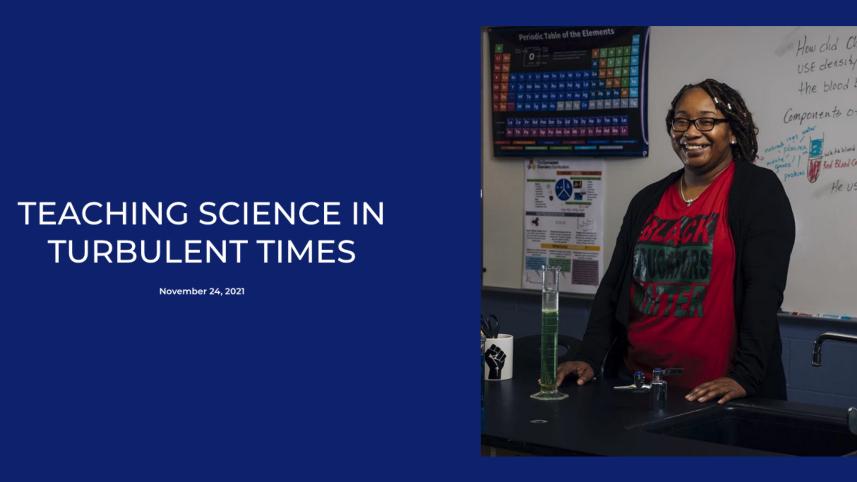"Teaching Science in Turbulent Times," a special report on science education from Education Week (November 24, 2021), featured NCSE's work in two of its articles.
"5 Ways to Teach Climate Change and COVID-19 During Polarized Times" quoted NCSE's executive director Ann Reid as describing science teachers as apprehensive about the possibility of provoking controversy by discussing the science relevant to current events, thinking "everyone is on such high alert right now, and everyone is so polarized and tense that I'm concerned to introduce something else that might set someone off."
The article also cited the NCSE/Penn State surveys of climate change educators, conducted in 2014-2015 (PDF), and evolution educators, conducted in 2019. Overt pressure on teachers about these topics is comparatively rare, Eric Plutzer of Penn State explained. "What we've concluded is that teachers are more likely to monitor the political and cultural environment and try to avoid triggering events that generate pressure."
NCSE's model lesson plans on evolution, climate change, and the nature of science, currently under development, were also discussed. One teacher who was slated to field test the nature of science lesson plans, which use the COVID-19 pandemic as a central example, was forbidden to discuss viruses in her classroom. "It's a shame," Reid commented, "because the science class feels to me like it could be a nice, neutral place for these things to be talked about.”
"Finding Hope in the Face of Climate Change: Why Some Teachers Focus on Solutions" also cited the NCSE/Penn State survey of climate change educators from 2014-2015, noting that a lot of science educators who discuss climate change incorporate a discussion of solutions that pertain to personal responsibilities, while "only 29 percent said that they talked about policy approaches, like cap-and-trade or carbon taxes."
NCSE's deputy director Glenn Branch suggested that talking about policy approaches to responding to climate change may strike teachers as verging on engaging in political advocacy. "Science teachers are mindful of the mores of their community," he explained. "They don't want to be seen as advocating for particular policies, especially in ways that their community may disagree with."
As if to confirm his description, the article quoted a science teacher in Illinois as saying, "My two cents is this should not be political." But Joseph Henderson of Paul Smith's College — and coeditor of Teaching Climate Change in the United States, reviewed in Reports of the NCSE in 2021 (PDF, p. 15) — argued that schools should address the political and economic issues: "You have to ask the questions: Who is burning the carbon, and for what reason?"
Also included in the special report were articles on the causes of science denial, teaching about COVID-19, and science education for students of color and for Native American students.


